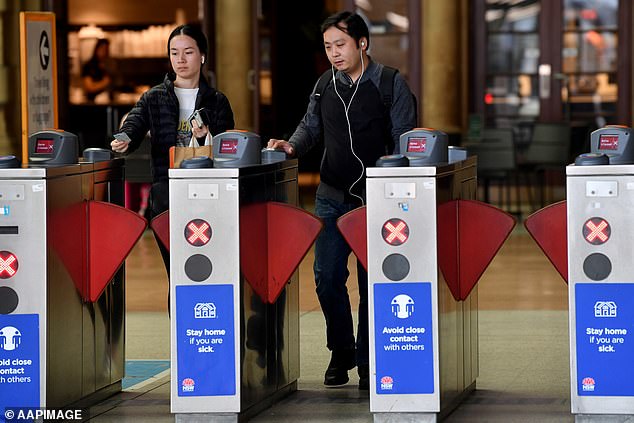- Australians working from home need to keep a diary
- They Could Jeopardize Your Tax Return If You Don’t
Australians working from home could put their tax return at risk if they don’t keep a diary of their allocated hours.
H&R Block tax communications director Mark Chapman said the Australian Taxation Office is likely to demand proof that someone worked from home during the last financial year.
“We expect the ATO to check the claims thoroughly, in particular to check whether taxpayers have a record of all their hours of working from home throughout the tax year, in the form of timesheets, a diary or a copy of the lists job,” he told the Daily Mail. Australia.
New rules went into effect in March 2023 requiring professionals who work from home to keep a journal of every hour worked at home to claim the flat rate of 67 cents per hour on their tax return.
That would make 2023-24 the first full financial year in which time worked from home would need to be recorded.
“If you do not keep a record of all the work hours you spent at home from July 1 to June 30, that is, for the entire tax year, you will not be entitled to claim the flat rate of 67 cents per hour” said Mr. Chapman.
The flat rate method is much simpler than itemizing all the expenses related to working from home.
“Taxpayers generally prefer this method because, apart from the requirement to keep a record of all hours worked, the documentation requirements are much less stringent,” Mr Chapman said.
Australians working from home could put their tax return at risk if they don’t keep a diary of their allocated hours.
“You simply claim 67 cents multiplied by the number of hours worked from home.”
The alternative is to claim the actual operating costs of working from home, from heating and cooling to energy bills, and calculate the part of that related to work hours.
“Alternatively, the actual operating costs of working from home can be claimed, which only requires keeping a diary for four weeks of a representative period,” Mr Chapman said.
«However, it is also necessary that you bring detailed justification (invoices, receipts, invoices) for all the expenses claimed and a calculation showing how you have distributed the expenses between work use and private use.
“It’s a lot of paperwork and that’s why few taxpayers use the actual cost method.”
The flat rate of 67 cents per hour for working from home takes into account internet and mobile phone bills.
Chapman said this meant the tax office would crack down on “double dipping” – the practice of claiming fixed rate and mobile phone costs – in a bid to recover an $8.7 billion gap between what was expects individuals to pay in taxes and what they are actually paying.

New rules went into effect in March 2023 requiring professionals who work from home to keep a journal of every hour worked at home to claim the flat rate of 67 cents per hour on their tax return.
“The ATO believes claims for work-related expenses are the largest element of that ‘tax gap’ and have signaled they will look closely at these deductions this year,” he said.
Those working from home are prohibited from claiming refunds of mortgage interest, rent or council levies on taxes, unless they are related to running a business.
Tax cuts
From July 1, revised stage three tax cuts came into effect, benefiting 13.6 million taxpayers.
Those earning between $80,000 and $100,000 will receive $804 more a year in tax relief under Labour’s plan, compared to the previous coalition government’s plan legislated in 2019 with Labor support.
“The tax cuts put more money in the pockets of taxpayers, especially those on low and middle incomes, and provided welcome relief from the rising cost of living,” Mr Chapman said.
‘Taxpayers don’t need to do anything to get the tax cut.
“Employers automatically adjust the amount of taxes they deduct from your pay, meaning you would have experienced an immediate increase in take-home pay starting July 1, 2024.”
But those earning more than $180,000 will receive $2,346 less in tax cuts.
People have until October 31 to file a tax return for 2023-24 or register with a tax agent to get an extension until May 15 of next year.


